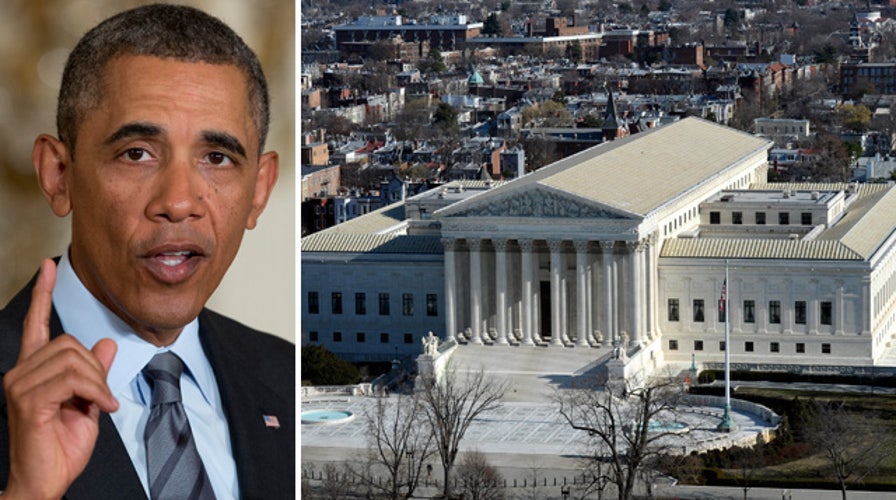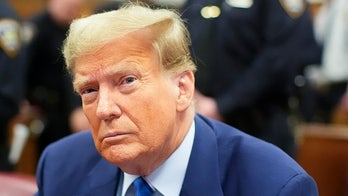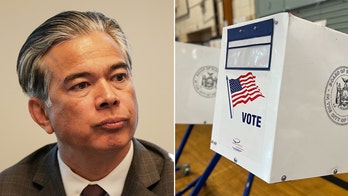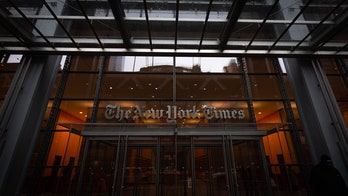Supreme Court hears arguments on limits of executive power
Shannon Bream reports from Washington, D.C.
Supreme Court justices voiced skepticism Monday regarding President Obama's recess appointment powers, in the first such case to be considered by the high court.
The court heard arguments Monday in a politically charged dispute over the president's power to temporarily fill top-level posts when the Senate is in recess. The justices heard more than 90 minutes of arguments in a case that centers on appointments Obama made in 2012 to the National Labor Relations Board.
While the justices repeatedly called those powers into question, Solicitor General Donald Verrilli Jr. warned the court that it would essentially write that power out of the Constitution if it found that those appointments were illegal.
But Justice Elena Kagan seized on the political dispute to make the point to Verrilli that "congressional intransigence" to Obama nominees may not be enough to win the court fight.
Kagan, Verrilli's predecessor as Obama's top Supreme Court lawyer, suggested that it "is the Senate's role to determine whether they're in recess."
The case being argued at the high court is the first in the nation's history to consider the meaning of the provision of the Constitution that allows the president to make temporary appointments to positions that otherwise require Senate confirmation, but only when the Senate is in recess.
Senate Republicans' refusal to allow votes for nominees to the National Labor Relations Board and the new Consumer Financial Protection Bureau led Obama to make the temporary, or recess, appointments in January 2012.
Three federal appeals courts have said Obama overstepped his authority because the Senate was not in recess when he acted.
The Supreme Court case involves a dispute between a Washington state bottling company and a local Teamsters union in which the NLRB sided with the union. The U.S. Court of Appeals for the District of Columbia Circuit overturned the board's ruling. Hundreds more NLRB rulings could be voided if the Supreme Court upholds the appeals court decision.
More broadly, if the justices ratify the lower court ruling, it would make it nearly impossible for a president to use the recess power. Under such a ruling, presidential nominees could be blocked indefinitely when the president's party does not control the Senate.
Three federal appeals courts have upheld recess appointments in previous administrations.
Senate Republicans also are taking part in the case, in support of the company, Noel Canning.
The impasse over confirming nominees to the NLRB and the CFPB was resolved last summer, and majority Democrats have since changed Senate rules to limit the ability of the minority party to block most presidential nominees.
The justices were considering two broad questions and a narrower one as well.
The big issues are whether recess appointments can be made only during the once-a-year break between sessions of Congress and whether the vacancy must occur while the Senate is away in order to be filled during the same break.
Verrilli Jr. told the court that 14 presidents have temporarily installed 600 civilians and thousands of military officers in positions that were vacant when the Senate went into recess at any point, a practice that has been well understood by both presidents and lawmakers. A high court ruling that a recess only happens once a year would "dramatically upset that long-settled equilibrium," Verrilli said.
The narrower issue is whether brief, pro forma sessions of the Senate, held every few days to break up a longer Senate hiatus, can prevent the president from making recess appointments. That's what the Senate did, at Republicans' insistence, during the time when Obama acted.
Senate Republicans say the answer is easy.
"Who determines -- the Senate, or the president -- whether the Senate is in session? The Constitution's text and structure point to only one answer: the Senate," the Republicans said in court papers.
But Verrilli said the Senate made clear in voting for the pro forma sessions that no business would be conducted and that, in essence, the Senate would be in recess. "The president took the Senate at its word. And rightly so," he said.
The Associated Press contributed to this report.





